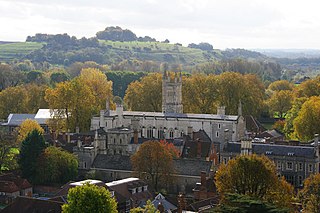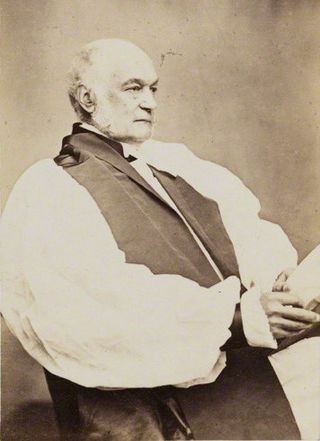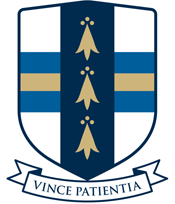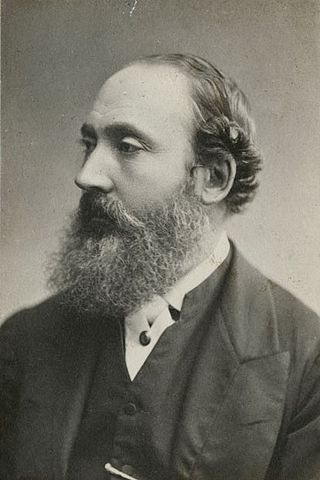Related Research Articles

Winchester College is an English public school with some provision for day attendees, in Winchester, Hampshire, England. It was founded by William of Wykeham in 1382 as a feeder school for New College, Oxford, and has existed in its present location ever since. It is the oldest of the nine schools considered by the Clarendon Commission. The school has begun a transition to become co-educational, and has accepted male and female day pupils from September 2022, having previously been a boys' boarding school for over 600 years.

Bradfield College is a public boarding and day school for pupils aged 13–18 in Bradfield, Berkshire, England. It is noted for its open-air Greek theatre and its triennial Greek play.

Hopkins School is a private, college-preparatory, coeducational, day school for grades 7–12 located in New Haven, Connecticut.

George Moberly was an English cleric who was headmaster of Winchester College, and then served as Bishop of Salisbury from 1869 until his death.

George Ridding was an English headmaster and bishop.

Twyford School is a co-educational, private, preparatory boarding and day school, located in the village of Twyford, Hampshire, England.
Cricket, and hence English amateur cricket, probably began in England during the medieval period but the earliest known reference concerns the game being played c.1550 by children on a plot of land at the Royal Grammar School, Guildford, Surrey. It is generally believed that cricket was originally a children's game as it is not until the beginning of the 17th century that reports can be found of adult participation.
Leonard Sedgwick Howell was an English footballer who won the FA Cup with the Wanderers in 1873 and made one appearance as a full back for England in the second international match.
Alfred James "Dandy" Lowth was an English cleric and first-class cricketer with amateur status. As a cricketer he was active from 1836 to 1841, when his career was cut short because of failing eyesight.

Henry Cotterill was an Anglican bishop serving in South Africa in the second half of the 19th century. From 1872 until death he was a bishop of the Scottish Episcopal Church in Edinburgh.

The Reverend Canon George Butler was an English divine and schoolmaster who was Principal of Liverpool College and later canon of Winchester Cathedral.
Charles Edward Briggs was an English cricketer and clergyman.

Thomas Parry Garnier was an English first-class cricketer and clergyman.
Charles Henry Ridding was an English first-class cricketer and clergyman.
William Anthony Stewart was an English first-class cricketer and clergyman.
Alfred Henry Evans was an English first-class cricketer and educator. Considered one of the best fast bowlers in England at the time, Evans played in 44 first-class matches between 1878 and 1885, taking over 200 wickets. He would later became a schoolmaster at Winchester College and would found Horris Hill School in 1882, where he was headmaster until 1920.
Edward Cornwall Lee was an English first-class cricketer. As a first-class cricketer, Lee was most active during the late 1890s and at the turn of the 20th-century, playing varsity cricket for Oxford University and county cricket for Hampshire. His first-class career cricket on an infrequent basis to 1909, with Lee making a total of 85 appearances.
John Cornelius Moberly was an English first-class cricketer, cricket administrator and solicitor.
The Philberds was a preparatory school based in a house in Holyport, near Maidenhead, Berkshire, on the site of one which Charles II had given to Nell Gwyn. The name derives from a family which owned land in the area in mediaeval times.
References
- ↑ J.B. Wainewright, Winchester College, 1836-1906: A Register (P. and G. Wells, Winchester 1907), p. 37 (Internet Archive).
- ↑ CricketArchive. Retrieved on 17 November 2008.
- 1 2 Foster, Joseph (1888–1892). . Alumni Oxonienses: the Members of the University of Oxford, 1715–1886 . Oxford: Parker and Co – via Wikisource.
- ↑ "Winchester College - Boarding House, B. Moberly's (Toye's)".
- ↑ "Review of Six Great Schoolmasters by F. D. How". The Athenaeum (4031): 102. 28 January 1905.